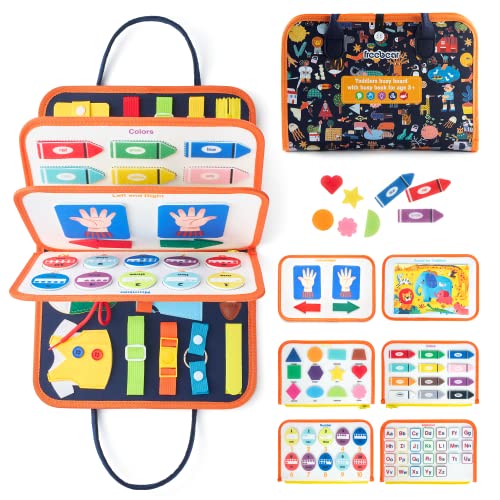In This Article Show
As a mom of three, I’ve journeyed through the multifaceted world of parenting, experiencing its highs and lows with a heart full of love and a mind eager to learn. In this blog, we’re addressing a topic that resonates with all of us: “9 Common Parenting Mistakes Even the Best Parents Make and How to Overcome Them“.
In our pursuit of being great parents, we sometimes stumble. Whether it’s being overprotective, not setting clear boundaries, or forgetting the importance of self-care, these are common challenges that many of us face.
The beauty of parenting, however, lies not in perfection, but in our ability to grow and learn from these experiences. Through this post, I aim to share insights and practical advice to help us all become more mindful, resilient, and effective parents.
9 Mistakes Even the Best Parents Make and How to Learn from Them
Making mistakes is part of the parenting journey. It’s how we respond and adapt that truly shapes our children’s lives and our own experiences as parents. Let’s explore these common pitfalls together, learn from them, and continue our journey with renewed understanding and love.
1. Overprotecting Children

In our earnest efforts to shield our children from harm and distress, we, as parents, often tread the fine line between caring and overprotecting. While it springs from a place of deep love and concern, overprotection can have unintended negative impacts on our children’s development.
It can also hinder the development of independence. When we’re constantly hovering and making decisions for our children, they may struggle to develop crucial skills like problem-solving, decision-making, and risk assessment.
Great deals to snatch for your little ones 🎉
Understanding these impacts helps us strike a balance in our parenting approach. It’s about being supportive yet allowing enough space for our children to explore, make mistakes, learn, and grow.
After all, our ultimate goal as parents is to raise individuals who are confident, resilient, and prepared to navigate the complexities of life.
2. Not Setting Enough Boundaries
The act of setting boundaries is a fundamental aspect of parenting. It’s about creating a framework of expectations and rules that guide children in understanding acceptable behaviors and responsibilities.
The absence of clear and consistent boundaries can lead to several challenges both for parents and children.
Boundaries are crucial for teaching children about personal limits and safety. Without them, children may struggle to understand what behaviors are acceptable, both in terms of their actions toward others and in their personal choices.
3. Neglecting Self-Care

The often overlooked aspect of parenting is self-care. Caught up in the whirlwind of parenting duties, it’s easy for parents to put their own needs on the back burner. However, neglecting self-care can lead to parental burnout, which significantly affects the quality of parenting.
When parents are overwhelmed, they may find it challenging to be emotionally present and responsive to their children’s needs. This can affect the emotional bond between parent and child.
4. Overemphasis on Achievement
Focusing excessively on children’s achievements can have several downsides:
- Increased Pressure and Stress: Constant emphasis on success can create undue pressure, leading to stress and anxiety in children.
- Fear of Failure: Children may develop a fear of failure, seeing it as unacceptable, which can inhibit risk-taking and creativity.
- Neglect of Other Aspects: Overlooking other areas like emotional intelligence, social skills, and hobbies can lead to an unbalanced development.
A balanced approach fosters well-rounded development, helping children grow into confident and resilient individuals.
5. Inconsistent Discipline

Inconsistent discipline in parenting can lead to several negative consequences for children. When rules and consequences aren’t consistent, it can confuse children about what is expected of them, leading to uncertainty and insecurity.
If children observe that rules are not consistently enforced, they might start to disregard them altogether. Also, it can affect a child’s ability to develop healthy social interactions, as they struggle to understand social norms and expectations.
To maintain consistency in parenting:
- Set Clear Rules
- Consistent Consequences
- United Front
- Routine and Structure
- Stay Calm and Patient
6. Failing to Listen Actively
Active listening is a cornerstone of effective communication and trust-building with children. When children feel heard, it strengthens the emotional bond between parent and child, fostering a sense of security and trust.
Techniques for Improving Communication with Children
- Give Full Attention: When your child is speaking, stop what you’re doing and listen attentively. Eye contact and nodding show that you are engaged.
- Reflect and Clarify: Reflect on what you heard and ask clarifying questions. For example, “It sounds like you’re saying… Is that right?”
- Validate Their Feelings: Acknowledge their emotions, even if you don’t agree with their viewpoint. Say, “I can see why you feel that way.”
- Avoid Interrupting: Let them finish their thoughts without interrupting. This shows respect for their words and thoughts.
7. Comparing Siblings or Peers

Comparing children to their siblings or peers can have lasting psychological effects. Children who are constantly compared may feel they’re not good enough, leading to a decline in self-esteem.
To promote individuality and acceptance:
- Celebrate Unique Qualities: Acknowledge and praise each child’s unique talents and achievements, irrespective of how they compare to others.
- Encourage Personal Growth: Focus on each child’s personal development and progress, rather than how they measure up to others.
- Foster a Collaborative Environment: Encourage children to work together and support each other, highlighting the value of teamwork over competition.
- Model Acceptance: Show through your actions and words that you value each child for who they are, not how they compare to others.
Creating an environment that celebrates individual strengths and minimizes comparisons can help in nurturing confident, secure, and emotionally healthy children.
8. Not Adapting to the Child’s Age
Adapting to a child’s evolving needs as they grow is crucial for effective parenting. Failing to recognize and adjust to these changes can impact a child’s development As children age, their cognitive abilities and emotional understanding evolve. What works for a toddler won’t be effective for a teenager.
While older children and teenagers can place greater importance on social interactions and peer relationships, requiring a different approach from parents.
Teenagers seek more independence and identity exploration. Parents should offer guidance but also respect their growing autonomy and privacy. At this stage, children require more hands-on guidance. Focus on safety, basic routines, and simple, clear instructions.
9. Ignoring Emotional Intelligence

The role of emotional intelligence (EI) in a child’s development is pivotal, yet it’s often overlooked in parenting. Emotional intelligence encompasses the ability to recognize, understand, and manage one’s own emotions, as well as to recognize and influence the emotions of others.
Children with high EI have a better understanding of their emotions. They can identify what they are feeling and why, which is essential for self-regulation. This helps them manage impulses and react to situations in a more considered manner.
Emotional intelligence equips children with the resilience to face setbacks and challenges. They’re better prepared to cope with stress and recover from negative experiences.
Promoting Emotional Intelligence in Children
- Model Emotional Intelligence: Demonstrate how to express emotions healthily and constructively.
- Encourage Expression of Feelings: Create a safe environment where children feel comfortable expressing their emotions.
- Teach Empathy: Discuss feelings and encourage children to consider the perspectives and feelings of others.
- Emotion Labeling: Help children identify and name their emotions to understand and manage them better.
- Problem-Solving Together: Guide children through problem-solving processes, discussing various emotional aspects and outcomes.
By focusing on developing emotional intelligence, we can help children grow into well-rounded, empathetic, and emotionally capable adults.













